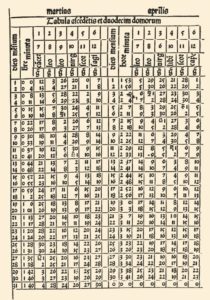The Church’s Greatest “Heretic”
Lope de Vera y Alarcon (c. 1619-1644) was born to the Spanish nobility in San Clemente, Spain. Despite being a Christian knight, de Vera wished to learn Hebrew and study the Bible in its original language. He enrolled at the University of Salamanca at 14. His studies drew him to Judaism, and at just 20 years old, he rejected the New Testament and his old Christian faith. The Inquisition immediately arrested him and threw him in prison. He refused to eat their non-kosher meat. His trial lasted for over a year, in which he continually affirmed that Judaism is the only true faith. Soon, de Vera formally converted to Judaism, circumcised himself with a bone knife, and took on the name Juda el Creyente, “Judah the Faithful” or “Judah the Believer”. His imprisonment lasted six years, during which time many priests and missionaries tried to win him back. Instead, he managed to convince at least a couple of them to abandon their Christianity, too! The frustrated Inquisition had enough and sentenced him to execution. He was burned at the stake on July 25, 1644. His final words were reportedly a verse from King David’s Psalms: “Into Your hand, Lord, I commit my spirit.” Despite his apostasy, one Inquisitor wrote of him: “Never has such firmness been witnessed as that displayed by this young man. He was well reared, scholarly, and otherwise blameless.” Another Inquisitor declared that “de Vera was the Church’s greatest heretic”. At the time, his story inspired and strengthened Jews all over the world, and caused countless Marranos (Spanish Jews forced to convert to Christianity) to return to their faith. Today, many Spanish and Portuguese people are rediscovering their Sephardic Jewish roots and converting back to Judaism, and see Judah the Faithful as a role model and hero.
Growing Number of Latin Americans Turn to Judaism
Intriguing Stories of Latinos Converting to Judaism
Words of the Week
Our Sages taught: Those who are insulted but do not insult others, who hear their shame but do not respond, who act out of love and are joyful in their suffering, about them the verse states: “And they that love Him are as the sun going forth in its might.” (Judges 5:31)
– Talmud, Gittin 36b



